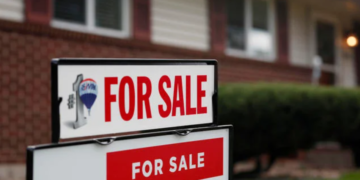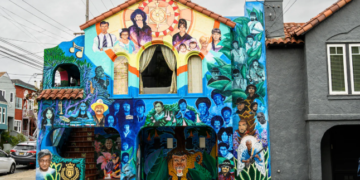Dec 4, 2024 Story by: Editor
A report from the National Association of Real Estate Brokers (NAREB) highlights persistent disparities in mortgage lending, revealing that Black mortgage applicants are denied loans more than twice as often as white applicants. The report shows that 15% of Black families face loan denials compared to just 6% of white families.
Experts attribute this gap to institutional biases entrenched in the mortgage industry. “It is institutionalized racism,” said Bruce Marks, president and CEO of the Neighborhood Assistance Corporation of America (NACA), in an interview with Yahoo News. Marks criticized the restrictive underwriting process used by lenders, which relies on credit scores, debt-to-income ratios, and loan-to-value assessments. “These criteria fail to reflect the realities of working people and minority homebuyers,” he explained, adding that credit scoring often misrepresents readiness for homeownership by considering irrelevant factors.
According to U.S. Census data, Black homeownership remains the lowest among racial groups. In the second quarter of 2022, the homeownership rate was 75% for white households, compared to 45% for Black households. A U.S. Treasury Department analysis found that the Black-white homeownership gap in 2020 was as wide as it was in 1970, despite the 1968 Fair Housing Act’s intent to address racial discrimination in housing.
The NAREB report also emphasized that outdated credit scoring models and discriminatory practices, such as redlining, exacerbate barriers for Black homeowners. Derrick Johnson, president and CEO of the NAACP, told Yahoo News that systemic racism continues to hinder Black homeownership. “We’ve seen aggressive redlining strategies that created the conditions the Fair Housing Act was supposed to address,” Johnson said.
Historical inequities further compound the issue. The 2008 housing foreclosure crisis disproportionately affected Black families, and NAREB reports that Black households missed a decade of low mortgage interest rates, with Black homeownership dropping to a 50-year low in 2019.
Another significant challenge is saving for a down payment. Black families often struggle to accumulate the necessary upfront costs despite meeting income qualifications. The median net worth of Black households is $24,000, compared to $188,000 for white households, limiting their ability to sustain homeownership.
Bias in home appraisals also impacts Black homeowners. The report cites an example from a 2022 New York Times article, where a Black man’s home in Baltimore was initially appraised at $472,000. When a white colleague posed as the owner, the property was reappraised at $750,000 — nearly 60% higher. A 2021 Brookings Institution report found that homes in Black neighborhoods are undervalued by 23%, amounting to $156 billion in lost equity nationwide.
Sanedria Potter, a Black appraiser, told NBC News that the lack of diversity among appraisers—98% of whom are white—is a root cause of appraisal bias. “When you’re appraising properties, you need to understand the neighborhood,” said NAREB president Lydia Pope, calling for more Black appraisers.
The Biden administration has taken steps to address appraisal bias. A March report from an interagency task force confirmed that homes in Black neighborhoods are appraised at significantly lower values than those in white communities.
In today’s competitive housing market, Black buyers also face challenges from institutional investors purchasing properties in cash, waiving inspections, and disproportionately targeting Black communities. NAREB recommends several strategies to close the homeownership gap, including updating credit scoring models, eliminating penalty fees for down payment assistance, and addressing appraisal biases.
Recent progress includes the Federal Housing Finance Agency’s approval of newer credit scoring models, FICO 10T and VantageScore 4.0, which aim to provide a more accurate assessment of borrowers. NACA has also announced initiatives to assist Black homebuyers, including nationwide events to guide potential homeowners through the loan approval process in a single day.
Marks highlighted the need to counter large investors such as Blackstone, which he says are reducing affordable housing availability. “These big investors are buying up properties in places like Atlanta and Charlotte, taking away homeownership opportunities,” Marks said. “We’re focusing on rural and midsized markets that have been overlooked and disinvested since Reconstruction.”
Efforts like these aim to close the racial gap in homeownership and address systemic inequities that have persisted for generations. Source: Yahoo News















